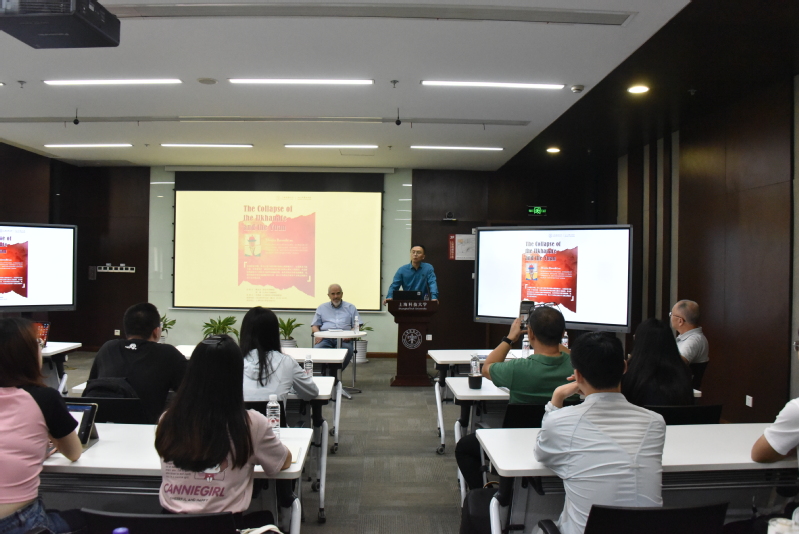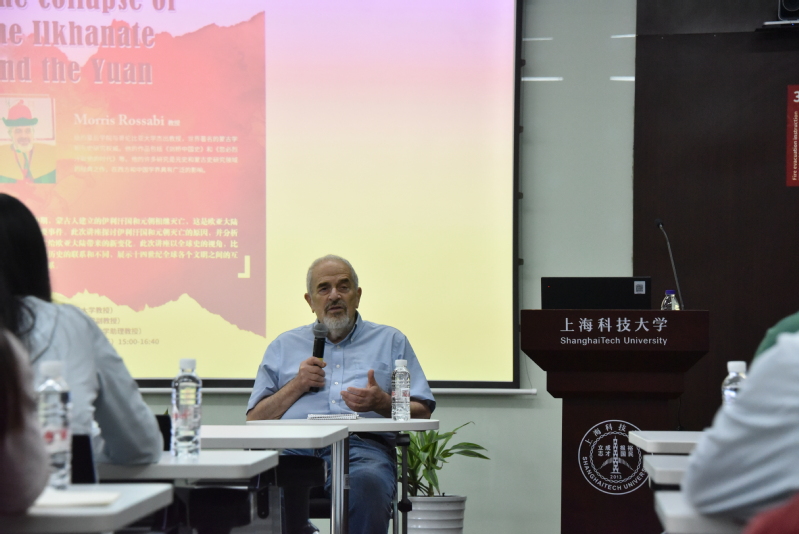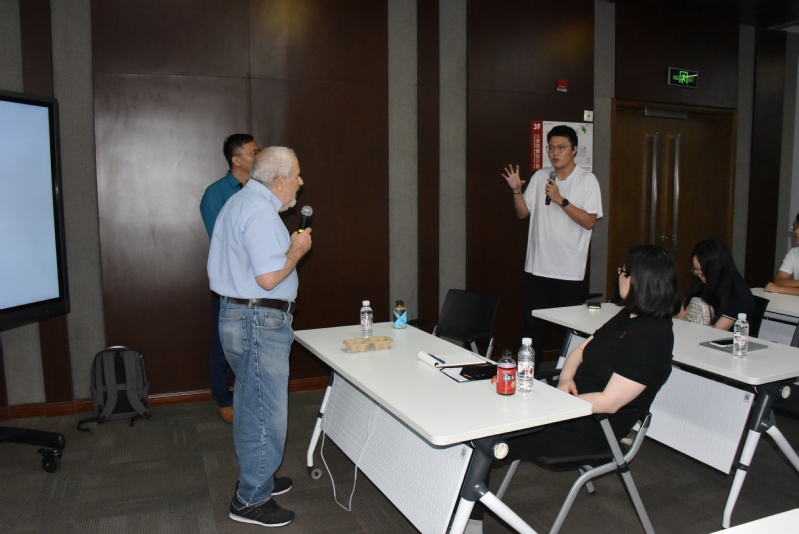At the invitation of the Institute of Humanities at ShanghaiTech University, Morris Rossabi, Distinguished Professor at the City University of New York and Columbia University, gave a talk named “The Collapse of the Ilkhanate and the Yuan” on September 20 in room 302 of the Library of ShanghaiTech University. Yao Dali, Eminent Professor at Fudan University, and Shu Jian, Associate Professor at Shanghai University, were the discussants. This talk was hosted by Liu Haiwe, Assistant Professor in the Institute of Humanities, and an audience of more than fifty professors and students from ShanghaiTech and other Universities attended this talk.

At the beginning of this talk, Professor Rossabi pointed out that in the early fourteenth century, the Ilkhanate and the Yuan dynasty, both established by the Mongols, collapsed. Previous scholarship has attributed these crises to malfunction of governance, climate change, or the spread of the Black Death. Rossabi proposed a new hypothesis, claiming that the global information network of the fourteenth century constituted a reason for the collapse of the Yuan dynasty. He further explained that when the Ilkhanate fragmented and finally collapsed in the 1330s, this news quickly spread to China through the global network of Muslim merchants. This news, which showed that the Mongols were not invincible, emboldened Chinese rebels against the Yuan dynasty, finally leading to the overthrow of the Yuan.

In the discussion session, Professor Yao Dali highly spoke of Rossabi’s new hypothesis, asserting that this argument sheds new light on our understanding of the history of the Yuan-Ming transition. Professor Shu Jian pointed out that many Korean soldiers participated in the Yuan campaigns against the rebels. Their records constituted valuable first-hand sources for examining this subject.

In the Q&A session, the audience raised questions regarding the Yuan dynasty and the Mongol empire to Rossabi and the two discussants. The atmosphere of this talk was congenial and convivial.
